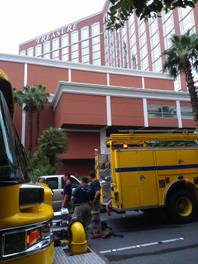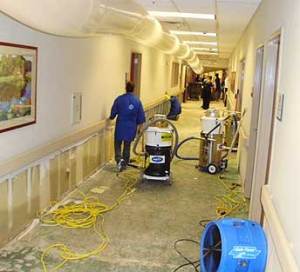The NFIP provides insurance for homes and businesses in flood prone areas, such as Cape May County. Created in 1969 to fill the gap after private insurers declined to continue coverage for property owners in flood-prone  areas, it now covers more than 5.6 million policyholders in 21,000 flood-prone communities.
areas, it now covers more than 5.6 million policyholders in 21,000 flood-prone communities.
“The federal flood insurance product is the only product available,â€Â
By the end of the second day after Superstorm Sandy’s powerful storm surge overwhelmed coastal areas of New York and New Jersey, the National Flood Insurance Program had already recorded more flood claims than the total for Hurricane Katrina, a storm that devastated the Gulf Coast in 2005.
William McMahon III, president of the McMahon Agency Insurance in Ocean City, said Sandy has since far surpassed the notorious Katrina.
Katrina, he said, delivered both flood and wind damage. Sandy’s damage was primarily from flooding. Few claims, he said, have been filed for wind damage.
Not long after Katrina, Hurricane Wilma tore across southern Florida, causing massive destruction.
“Wilma was a small storm. It came across the state from the gulf blowing about 70 mph, but the wind did major damage by the time it hit Miami,†McMahon said. “The wind ripped through all the high rises with 100 mph winds.â€
In the wake of those two storms, barely two months apart, insurance companies bailed out of writing property and casualty insurance policies in some areas of Florida. The state of Florida, he said, instituted its own carrier, Citizens, now the largest underwriter in the state.
Florida and Louisiana, he said, are the two most difficult states to obtain property insurance. While flood insurance is available in Florida, it is expensive, particularly close to the coast.
For more: http://www.shorenewstoday.com/snt/news/index.php/ocean-city-general-news/32569-flood-insurance-claims-from-sandy-top-katrina.html










